The scenario is all too common: a sales team launches a role-play program with high hopes, only to see it gradually fade away despite the acknowledged benefits. Reps often see the value, and managers believe in the concept, but the practicalities of maintaining a consistent program prove overwhelming.
The primary culprit is the reliance on manual systems that simply don’t scale. Even with the emergence of general AI tools like ChatGPT, creating a structured and repeatable system that delivers consistent results across a sales team remains a significant challenge.
Consider a rep using a general AI tool to practice objection handling. While it might offer a basic interaction, it often lacks the crucial elements needed for truly effective and scalable practice. These limitations include a lack of specific alignment with your unique sales process, inconsistent feedback that isn’t tied to your key performance indicators, and the absence of centralized visibility for sales leadership to monitor engagement and progress.
To truly scale role-play and unlock its full potential, organizations need a system specifically designed for the nuances of sales practice. This is where purpose-built platforms like Copient.ai come into play. These solutions offer a fundamentally different approach by:
- Providing customized scenarios: Tailored to your specific products, processes, and buyer personas, ensuring practice is directly relevant.
- Enabling independent, on-demand practice: Allowing reps to practice anytime, anywhere, without requiring manager involvement.
- Delivering automated AI feedback: Offering immediate insights on key skills and responses based on defined criteria.
- Providing real-time manager dashboards: Allowing leaders to track completion rates, engagement levels, and overall progress.
Imagine the impact of a new sales hire being able to complete fifteen relevant role-play scenarios within their first two weeks, entirely on their own schedule. Salesforce uses a similar approach with their Trailhead learning paths—enabling scalable skill-building without 1:1 manager time.
This frees up valuable manager time, allowing subsequent coaching sessions to focus on reviewing progress, refining advanced techniques, and accelerating their readiness for live customer interactions. This is the essence of scalable role-play: structured, consistent practice seamlessly integrated into your team’s workflow without adding to manager burnout.
In Drive, Daniel Pink explains that true motivation stems from autonomy, mastery, and purpose. Scalable role-play systems support all three: reps gain autonomy over when they practice, pursue mastery of key selling skills, and align their growth with the purpose of driving impact for their customers and team.
In Part 3, we will introduce the Coaching Flywheel, a powerful framework that leverages AI-driven practice to enable strategic and high-impact coaching conversations.




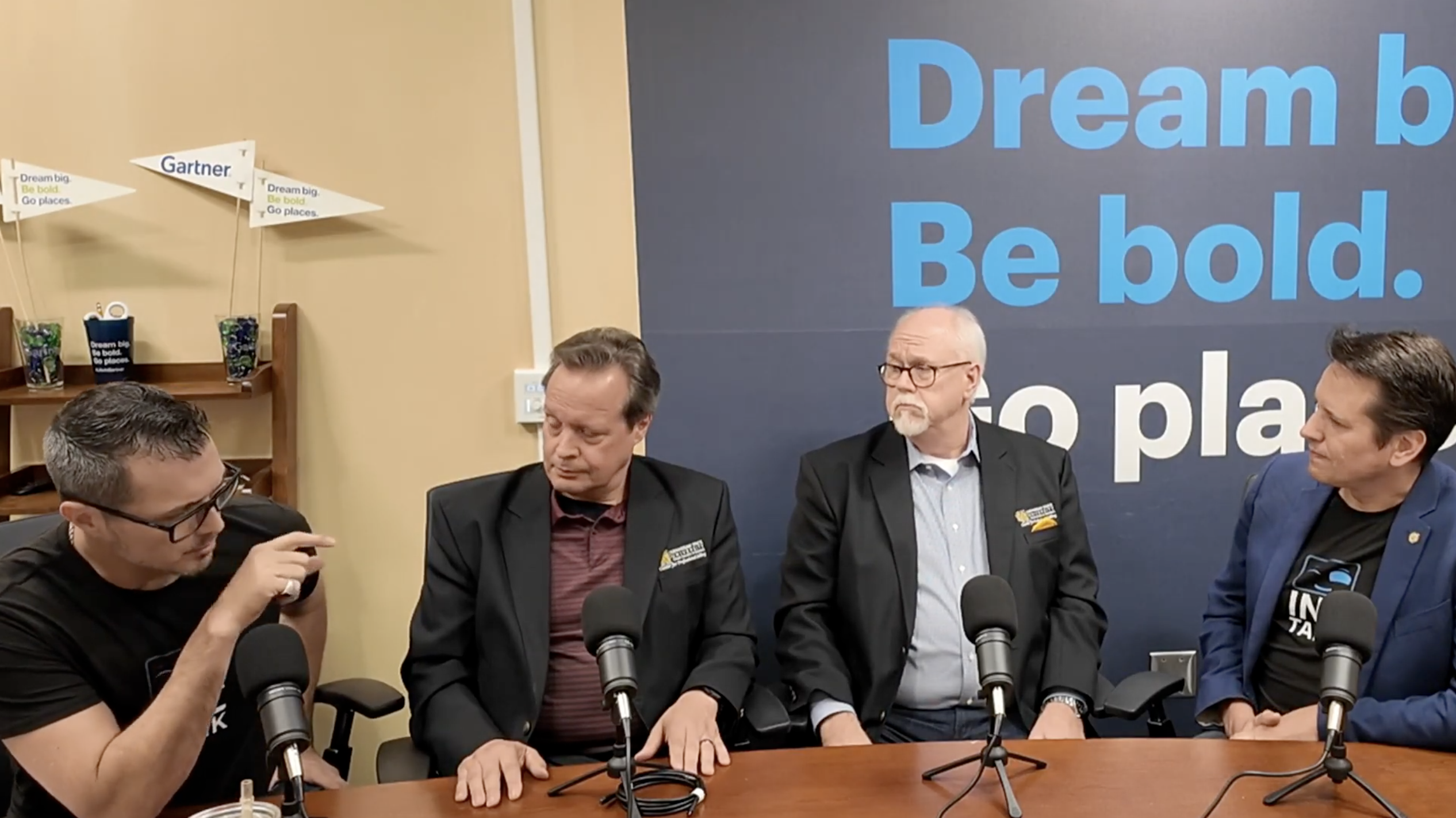

.png)
.png)
.png)
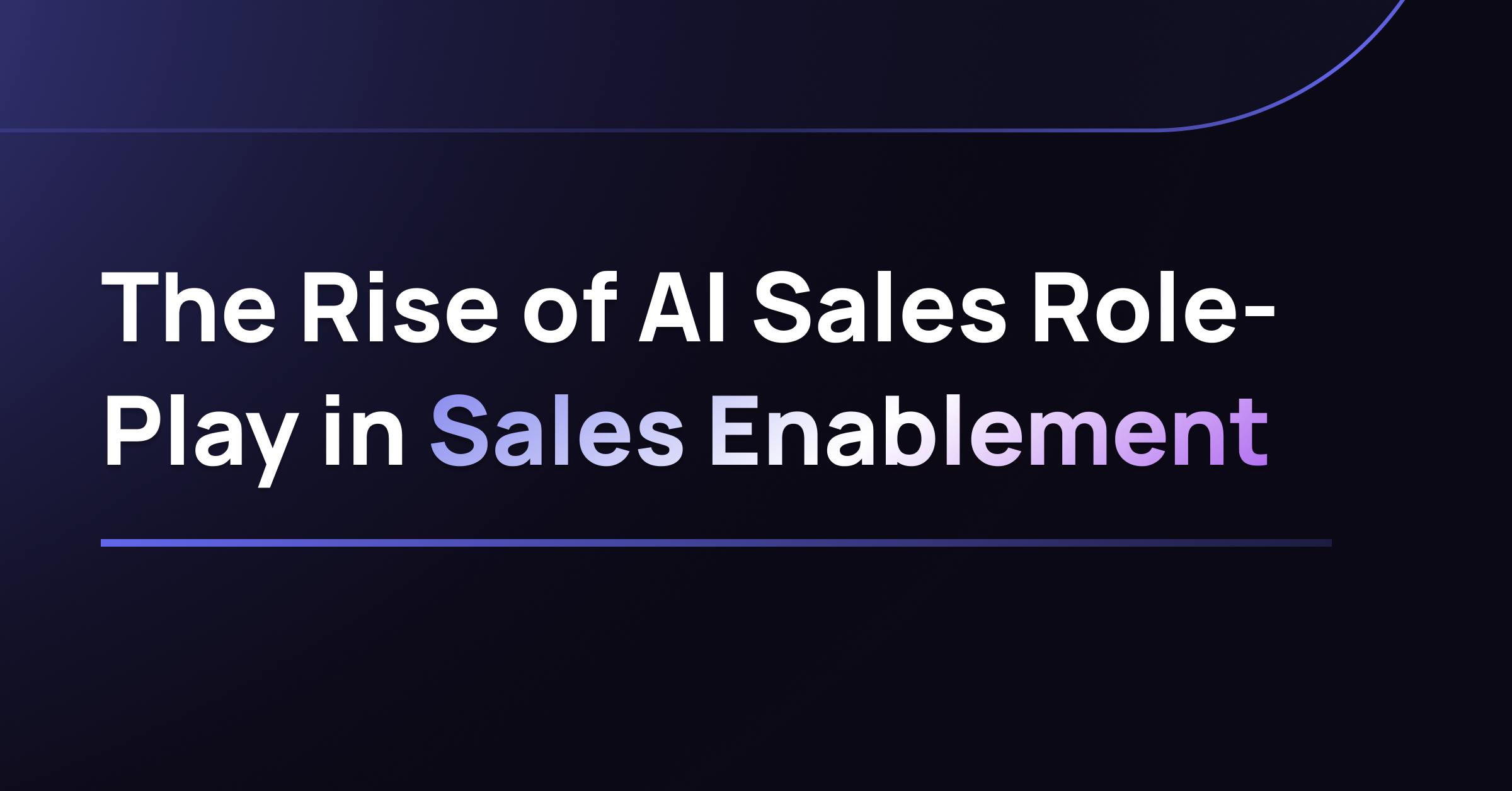
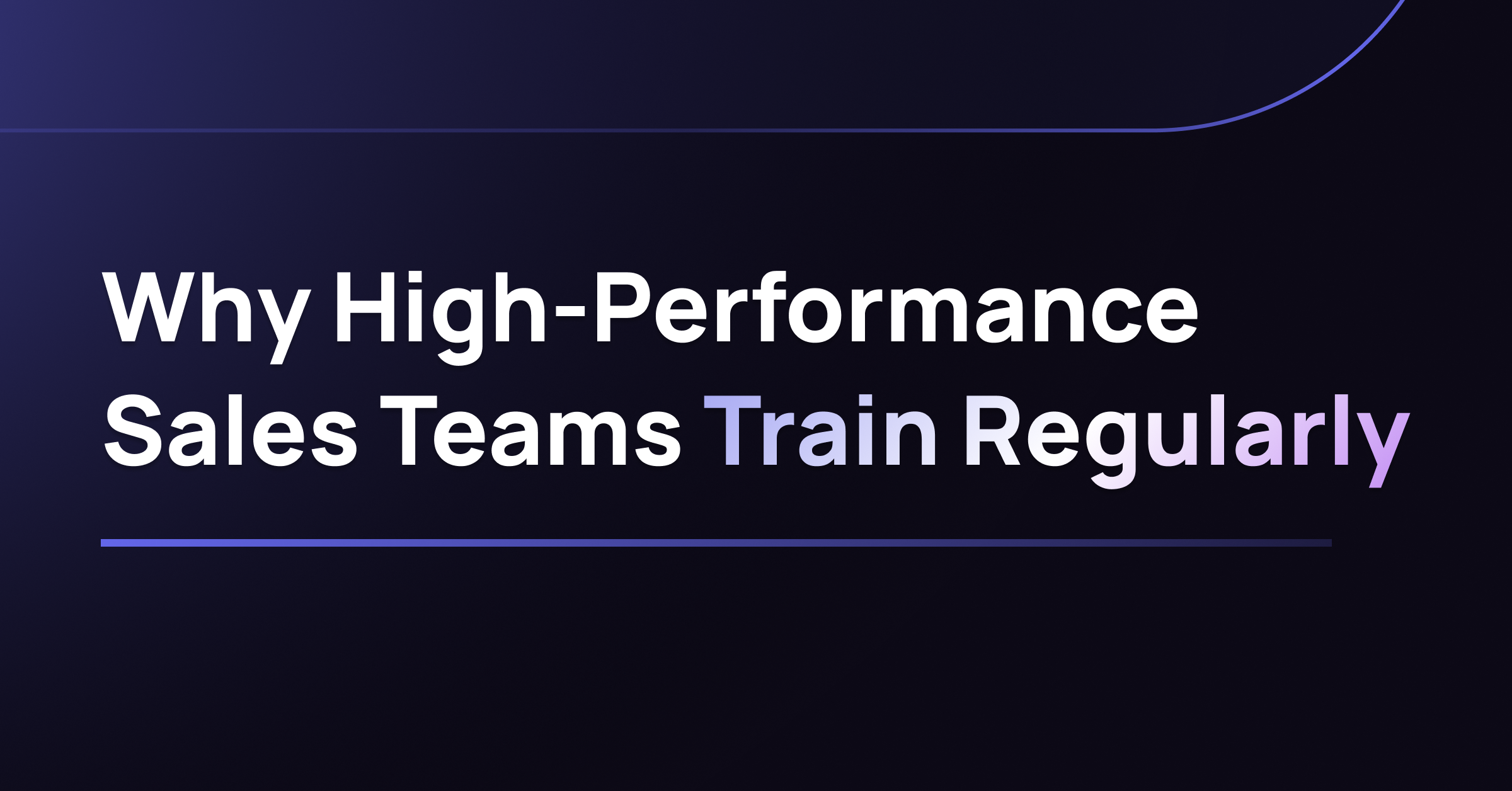
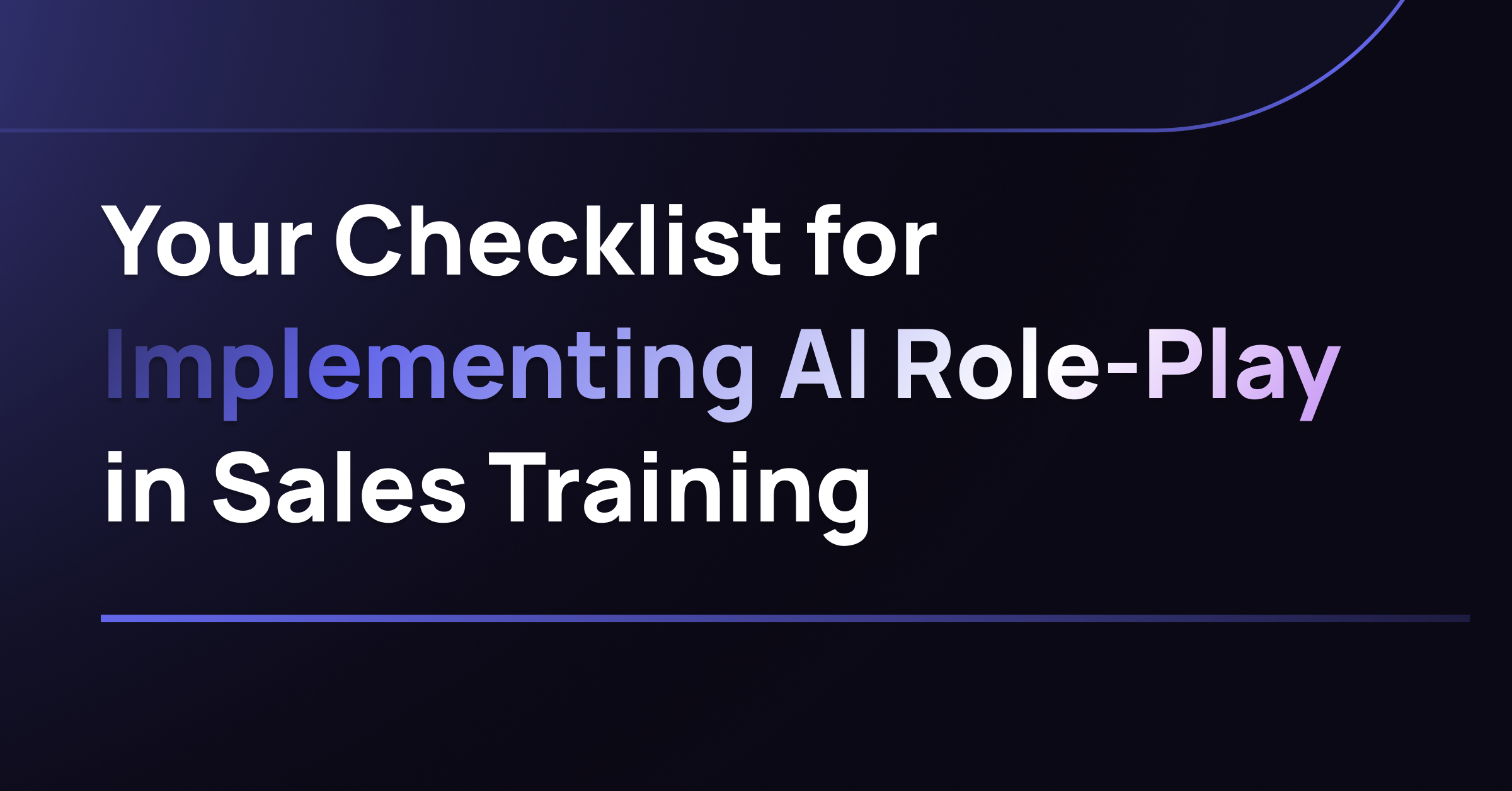
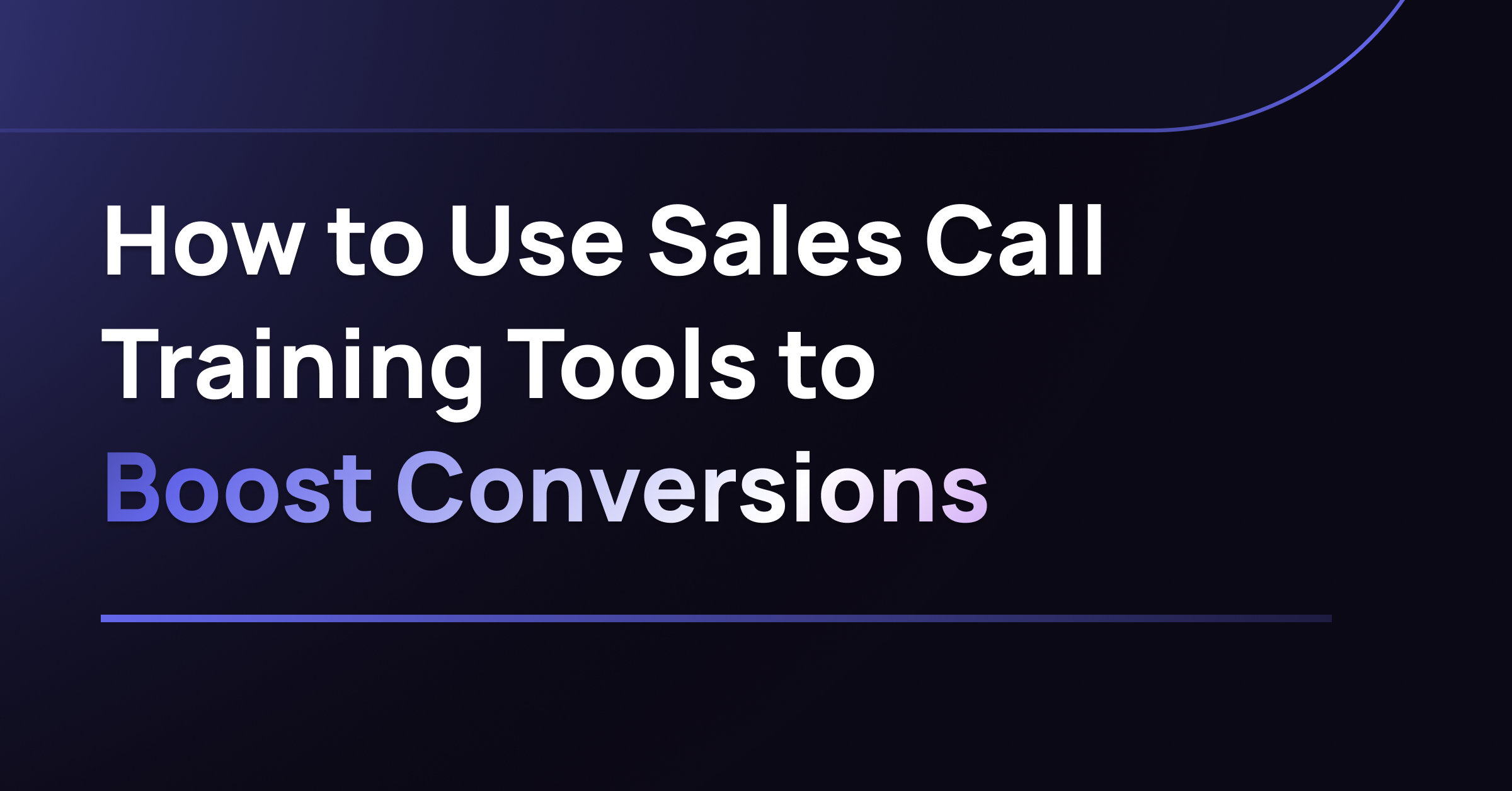
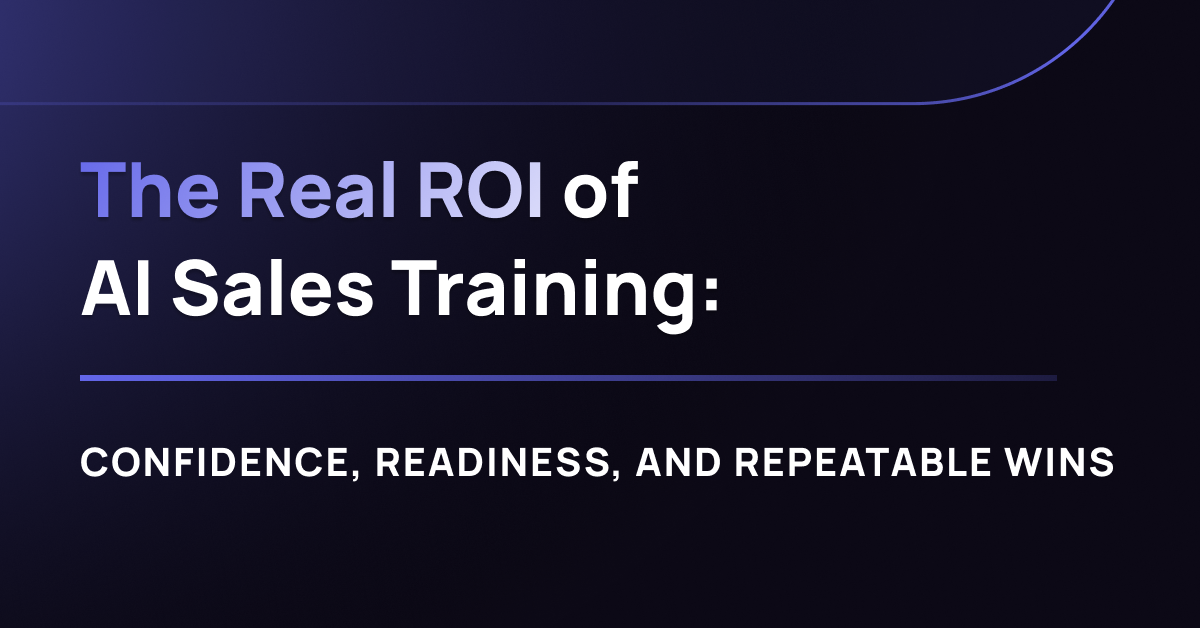
.png)





.png)



.avif)